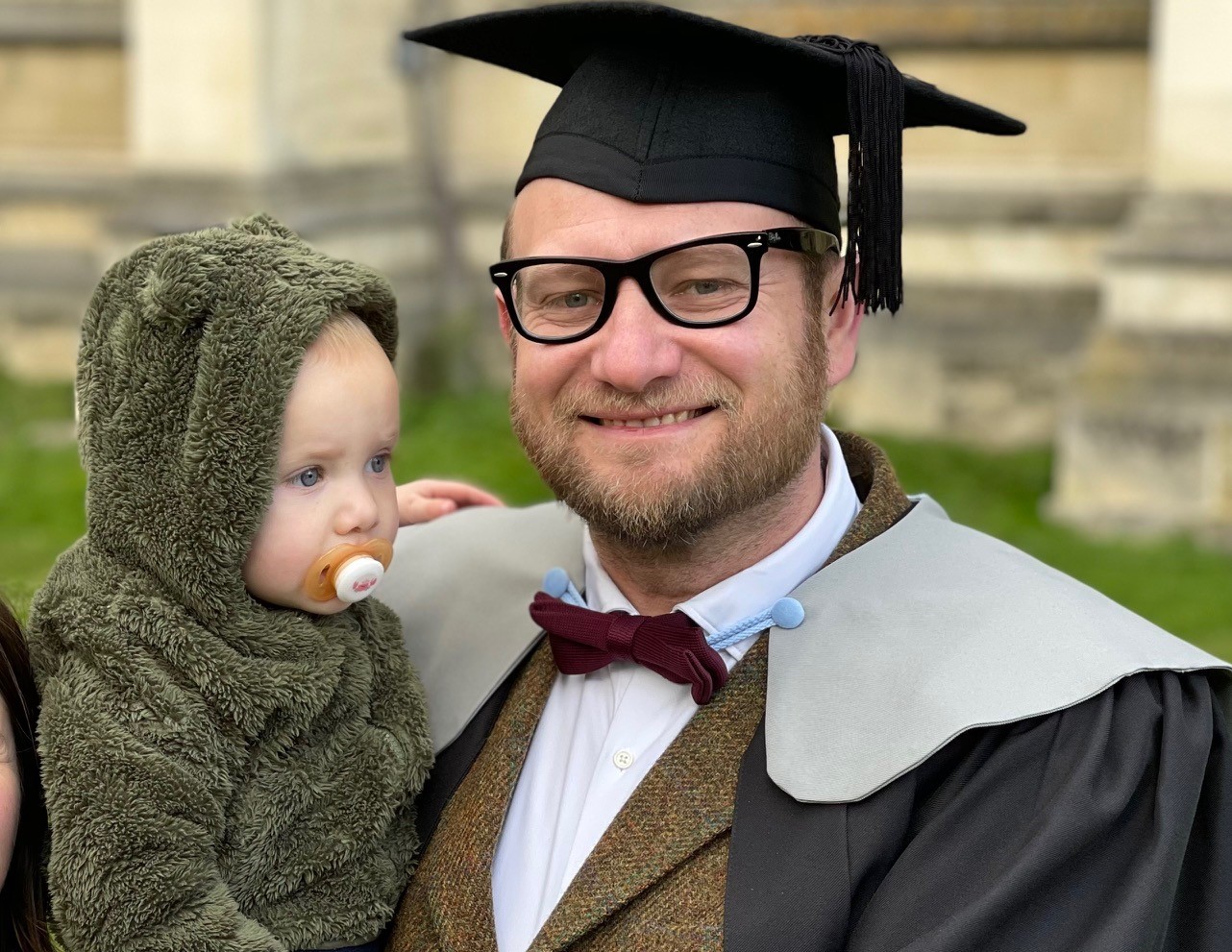Tobin Lochrie was looking for a career change when he joined the Professional Economist Degree Apprentiship Progamme where he was apprenticed to the Department of Education.
Lochrie graduated along with the rest of his cohort, the first to complete a full cycle of this programme, at a ceremony at Canterbury Cathedral in November 2023. His dissertation has been selected for inclusion in the Kent Economics Degree Apprentices Journal, from a list recommended by the Independent Assessors who had sight of the year’s dissertations. Lochrie chose to look at the impact of school absenteeism as the subject of his research. He utilised data from the Long-term Education and Outcomes (LEO) survey to perform the analysis and highlights the importance of effective engagement in school for individual future prospects. We asked him about his experience:
Can you tell us about the process of writing your dissertation.
I deliberately chose a topic that would have a benefit to the department I work for (education) in an area I was currently working. I could therefore draw on the experience of colleagues to point me towards relevant papers for the Lit review. There is a great deal of interest in the findings of my research and I have been allowed to develop the study after the dissertation has been handed in.
Can you tell us about choosing to study on the Professional Economist Degree Apprenticeship Scheme?
I worked as a teacher prior to commencing the apprenticeship. After 15 years or so I decided I needed a new challenge. I’d explored the route of doing a traditional degree, however – this wasn’t financisally viable at the time (with tuition fees a major blocker). My partner worked for the civil service at the time and alerted me to the Economics apprenticeships. I have an interest in Economics so it seemed a perfect fit. Additionally, I’d always wanted to work in the civil service – so this was a perfect entry route which allowed me to develop new skills and the rest is history.
How about your career change?
I’m delighted at the ability to move straight into a role at the civil service – without having to go through the interview process again to get onto a graduate scheme. Degree apprenticeships are a great way to get into a career in the civil service, I wish I’d have been able to apply when I was 18.
What skills did you gain that you’ll carry with you for life?
Getting back into studying and juggling this with my personal and work life has given me great time management skills and a level of discipline I didn’t have before. Organisation is now one of my key skills in the workplace.
Would recommend this type of study to someone else?
I wouldn’t hesitate to recommend this type of study to anyone. As well as getting a good education, students will also get valuable experience working for the civil service and a guaranteed job upon completion (subject to obtaining the minimum grade). Online learning wasn’t a problem for me, (in fact i found it preferable to the in person lectures of my first degree). Timing wise, having one day per week to study was just about manageable – although I sacrificed some weekends when assignments were due. Once I got into the flow a bit more though, time management wasn’t a problem. My partner and I had a baby while I was in year 3 of the course. From a financial perspective, the ability to earn a salary and no tuition fees meant it was feasible for me to retrain and still support my family. Although i did take a small pay cut from my teaching salary.
Read Tobin Lochrie’s research in full “What effect does school absence have on an individual’s labour market outcomes?” in the Kent Economics Degree Apprentice Research Journal Vol 1: 2023.

